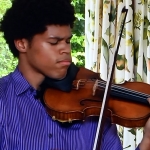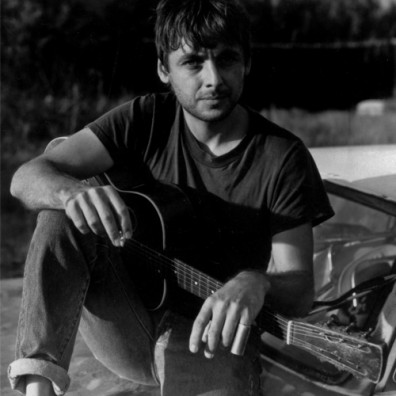Rainer: Story Teller Supreme
SNIPPETS
BC. Tell me a little bit about Rainer, his influence on you as a friend and a musician. He’s obviously still a big influence on your whole life, though he died in 1997.
HG. I’d been in Tucson off and on for two or three years and then I finally moved here when I was 19. I was going to art school but it wasn’t working, and I was getting ready to drop out. I was trying to get a gig in town and I saw that there was a guy named Rainer playing at a place called Basement Café. And so I hooked up with Rainer and just kind of took him on as an older brother, since I didn’t have one. He was five years older, and he was as influential as an older brother would have been, aesthetically and creatively: the way he lived his life, what he thought was important. It’s that trajectory you take on when you’re younger, it aligns you. We had these endless jams where we’d try to play a song structure as minimally as possible and get the most out of it. He was one of the more masterful human beings I’ve met here. He seemed to have a handle, a sweet kind grip, a soulful stance; he was funny and dear and good. He had no negative energy.
RAINER - ALPACA LIPS By Howe Gelb
Rainer and I separately moved to Tucson in 1972. We found each other there in 1976. He died in 1997.
After he was gone we stumbled upon this record he made. It was completely finished and sequenced, but he never got around to releasing it then because of a sudden seizure that revealed a cancerous brain tumor.
In the 20 months between his first and last seizure, he was not his old self. He had to learn to play guitar all over again. Many new and great songs got written up during this time, but he must have completely forgot about this record through it all. When we found it we were astonished. It is such a perfect record. Like most of his recordings, it sounds impressively better with every year that passes.
It also has one of the most exceptional songs ever written: “story teller.” It tells the tale of boy who finds some hidden letters to his father, and as you follow the story line, the narration then flips around on the last verse to reveal a sudden twist. It is stunning.
Rainer had perfected a unique recording style with a single stereo mic that could capture his voice and his singular performing style, playing his 1934 national guitar off of a primitive digital effects pedal he would set up to impossibly captured rhythms of himself he instantly looped. The last track on the album was the only time he ever recorded one of my songs. I had no idea. I crumbled. This record is a monument to the man’s momentum. Released in 1998 (a year after his death), it’s the living end.
Michael Metzger, Former Tucson Weekly Music Editor
I once asked Rainer if he didn’t ever want to climb to the top of the nearest mountain and scream at the world in frustration. I wanted to understand how a man who was so innovative and forceful on guitar, and who could write such powerful songs, could stand to be anything less than a star. He smiled and looked down for a second, a bit embarrassed by the extravagance of the question. He quietly asked who would hear him on the mountain top, and what would they think of yet another fool shrieking about his own greatness?
Why don’t you get out of this town and go where people will recognize your talents? I asked. Another smile, another pause and more softly spoken words: His life with his wife and children. His music was only possible because of the love of Patti and their kids. He wouldn’t be the musician he was if he was on the road away from them, he told me. His typical response to any of my exclamations about his talents, or questions about his life and career, was a smile and a pause. And in those pauses, patient smiles and thoughtful words, I learned from him. The talent was inexplicable. The choices were the essence of Rainer; they weren’t easily translated into glib phrases or off-hand comments to be printed on paper for people to read and toss away.
What I never learned from him and still don’t understand, is how a man could be so talented and so accepting of world’s so-often casual dismissal of what he had to offer. I’m at a loss to explain - to even understand - what it was inside him, around him or flowing through him that allowed him to make such tender judgments. It makes me miss him and wish for more lessons.
Discography
Avid Demo List (circa 1979, cassette)
The Mush Mind Blues (1983, with Das Combo, cassette)
Live Downtown (1985, with Das Combo, cassette)
Barefoot Rock with Rainer and Das Combo (released on LP in 1986, re-issued on CD in 1994)
Worried Spirits (1992)
The Texas Tapes (1993, with Das Combo)
D.Y.O. Boot (1995)
Nocturnes (1995)
Rainulator (1996, cassette)
The Inner Flame: Rainer Ptacek Tribute (tribute and benefit album, released in 1997)
Alpaca Lips (released 2000)
Live at the Performance Center (released 2001)
The Farm (released 2002)
17 Miracles (2005, collection)
The Rainer Collection (2006, collection)
The Westwood Sessions, Volume I (with Das Combo, released November 2007)
|
|

|

My Latest Novel |
LATEST GALLERY IMAGES

Where Israel Goes, Misery Follows 
The Kanneh-Masons |
|
|


